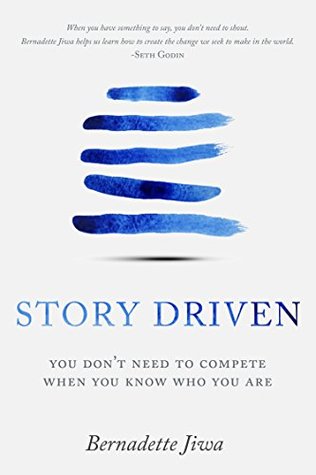More on this book
Community
Kindle Notes & Highlights
Read between
January 3 - June 6, 2019
Great companies have something in common: they don’t try to matter by winning. They win by mattering. The people who build them know what they stand for and act on those beliefs. What they think, say and do are always in alignment. Their story is consistent. Great companies rise to our expectations by being who they said they would be.
Audrey liked this
It’s hard to do work you’re proud of if you’re focused on crushing the competition or making the next million. There is an alternative, though: you can harness the power of your unique identity to build a brand that matters.
In our Western world of abundance and privilege, greatness is a game of comparison that drives us to achieve more. Bigger wins, more sales, hockey-stick growth charts, increased market share, scale, power and influence. Permanently higher highs that inevitably end in compromise. We have created a culture where we’re not winning unless someone else is less-than or losing.
The irony, of course, is that the people and success stories we’re drawn to and try to emulate are aspirational precisely because they stand for something and don’t necessarily take the fast or easy route to ‘more’. From Amazon to Apple, Branson to Blakely, those who are pioneers in their fields consciously take a path they believe is worth walking. For them, success is now—the alignment of thoughts, beliefs, intentions and actions. The journey is part of their success.
McAdams’s theory of narrative identity. He says that we are born actors, begin to develop agency around the age of eight and become authors of our stories in our late teens onwards. McAdams proposes that a person’s identity is formed by integrating life experiences into an internalised, evolving story that provides him or her with a sense of purpose. We make sense of who we are by piecing together stories from our reconstructed past, perceived present and imagined future. As Professor McAdams explains, ‘In personality psychology, what mainly counts when it comes to the idea of a life story is
...more
Audrey liked this
Your metric for success is a choice. How you apologise is a choice. The expression you wear as you greet the customer is a choice. Where you source your ingredients is a choice. What you include in or omit from your terms and conditions is a choice. Investment in design. Location. Creating opportunity in low-income communities, prioritising customer care and empowering staff—all choices we’re free to make. Rather than feeling overwhelmed about the prospect of getting it wrong, consider these decisions as deliberately placed waymarkers on the road to creating the impact you want to make.
In addition to manufacturing tyres, Michelin created and distributed guides for drivers to help them to find hotels, mechanics and fuel throughout France. You could say that the company was one of the world’s first content marketers.
Demonstrate our unwavering commitment to social and environmental impact by becoming a B Corp and adhering to the standards that demonstrate who we are as a company. Treat everyone at every level of our daily operations with dignity, love, and respect, by doing the right thing, like paying people a living wage. Acknowledge that we have not come this far just to come this far. Use that purpose to fuel continual growth with the intention of changing the world. Use that money to be even better at producing a product that matters for everyone. While doing above, be steadfast in our culture of this
...more
A great company respects and nurtures the people it employs and the customers it serves. A great company doesn’t just thrive because it’s profitable; it’s profitable because it helps people to thrive. Great companies leave the world better than they found it—which is why those of us responsible for creating and building businesses must be as clear about the way we get to our destination as we are about what that destination is.


